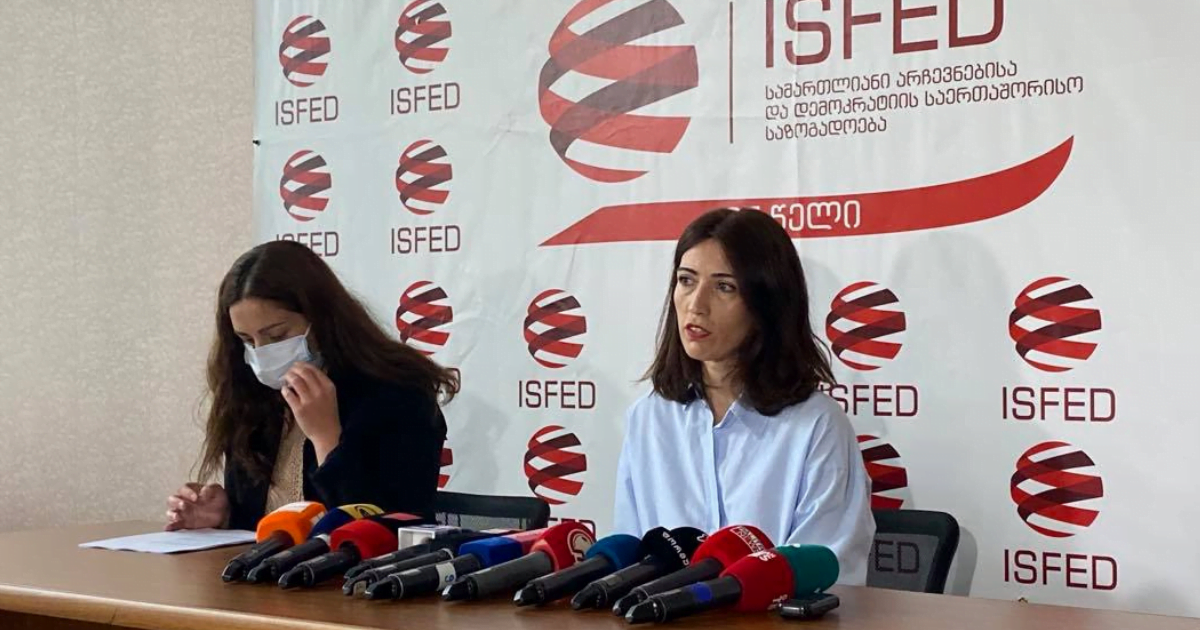The International Society for Fair Elections and Democracy (ISFED) Policy Document says that although Georgian legislation “more or less covers” the main issues defined by international standards that exist in the field of political finance, the dominance of the ruling party in fundraising, leading to financial inequality among parties is identified as a major problem.
The document examines how political finance works in Georgia and assesses whether Georgia’s rules and practices in this area align with international standards.
According to ISFED political groups in Georgia can receive funding from private sources, such as companies and individuals, also there are direct and indirect ways for a party to receive state funding. However, a major problem is the dominance of the ruling party in fundraising. This situation enables political corruption: in almost every election cycle, there are many cases when the ruling party’s donor companies, or individual donors who own companies, receive major government contracts and property.
In Georgia, all parties receive state funding based on 1% of the votes from the most recent parliamentary elections. As a result, newcomer political parties seeking to participate in local elections have difficulty securing funding, as the state only provides financial support based on the results of parliamentary elections. Generally, the largest Georgian political parties are heavily dependent on state funding.
The legislation provides grounds for the suspension of state funding that, according to ISFED, are not in line with international best practice. For example, a party can lose its right to state funding if half or more of the MPs elected on its list resign before the end of the mandate.
The state budget grants a 30% bonus in direct budget funding to a political party if at least one of its three candidates is of a different gender. The law stipulates that these additional funds should be used to support women’s organizations. However, ISFED’s discussions with political parties have revealed that these funds are often used for general party needs, hindering the intended strengthening of women’s organizations and their role within political parties.
Until September 1, 2023, the State Audit Service was an agency tasked with overseeing political finances, but from September these functions were taken over by the newly created agency, the Anti-Corruption Bureau. Over the years, the main problem that the State Audit Service had in terms of its mandate was that it did not have criminal investigation powers, which made it extremely ineffective in terms of investigating cases of political corruption. Since the Anti-Corruption Bureau does not have this function either, it will face the same problem, predicts ISFED.
ISFED’s prediction is that, in terms of institutional independence, the Bureau whose head is appointed by the Prime Minister, will probably not fare better than the State Audit Service.
ISFED provides the following recommendations:
For Parliament of Georgia
- To amend the law in such a way that political parties can obtain the right to receive state funding not only on the basis of the results of parliamentary elections but also on the basis of the results of local elections so that the new parties with high results in the local elections are not oppressed;
- To increase the independence of the Anti-Corruption Bureau and its head should be elected not by the Prime Minister but by a qualified majority of the Parliament;
- To give Anti-Corruption Bureau the power to conduct criminal investigations.
For Political Parties
- To comply with the requirements of the law and allocate additional funds for the promotion of women’s representation to the activities of the party’s women’s organization;
- To conduct fundraising campaigns on a regular basis, including during the non-election period, in order to receive more donations and reduce the degree of dependence on state funding;
- To increase the transparency of electoral expenses, it is recommended that electoral subjects sign individual employment contracts with the employees hired during the electoral campaign, in which the activities of the employees and the terms of the contract are regulated in detail.
For the Anti-Corruption Bureau
- To effectively investigate the financing of political parties, to respond to possible cases of political corruption, and, in the pre-election period, to publish the interim results of the monitoring of the finances of electoral subjects.
Also Read:
